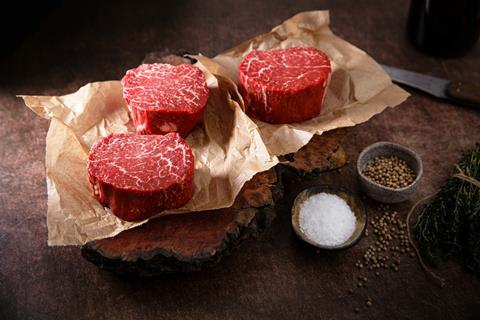The Agriculture and Horticulture Development Board (AHDB) has analysed consumer trends around seasonal occasions, like Easter and Christmas, stating that events can “significantly impact” the overall yearly performance of red meat products.

The report aimed to “help supply retailers and processors with insight about how red meat and dairy perform at key seasonal events throughout the year”, identifying future opportunities to help boost sales.
AHDB said the report may also be of interest to British farmers, as it highlighted “consumer context to when these peaks in demand are likely to occur”.
It was reported that more than three quarters of shoppers say that they “look forward to hosting” events, and special events are seen as a “good excuse to indulge and purchase special or unique items to create memorable experiences” (IGD, 2024).
In 2023, there were 52.7 million in home and carried out meal occasions containing beef, lamb, pork and dairy, making them present in 84% of all meals eaten in the year and worth a total £23.5 billion, according to Kantar Usage.
Red meat sales increase over the festive period
AHDB said that even though seasonal events may last just a day or two, events like Easter and Christmas, and even royal occasions like the King’s Coronation, can “significantly impact” the overall yearly performance of red meat and dairy products, as shoppers claim that they are less likely to stick to a strict budget when it comes to food for celebratory occasions.
Christmas was seen to be both the most important and the most celebrated event for shoppers, with AHDB stating that it outranked birthdays and anniversaries. Primary lamb had a strong Christmas performance last year, with nearly five times the volumes of leg roasting joints sold in the lead up to Christmas compared with an average two-week period. Beef volumes purchased were up by over 12% on an average two-week period (Kantar, two w/e 24th December 2023).
AHDB retail and consumer insight analyst, Charlotte Forkes-Rees, said: “In the minds of shoppers, events are often heavily associated with specific food and drink, as well as how they are celebrated.
“However, people may be surprised to discover that our new research highlights some changing attitudes to seasonal events, with some consumers stepping away from tradition and trying something new when hosting or celebrating.”
Forkes-Rees continued: “This report aims to provide retailers and processors with insight about how red meat and dairy perform at key seasonal events throughout the year. Allowing them to understand the needs, desires and drives of their customers, capture trends and tailor product messaging to meet consumer expectations.
“I’d also encourage British farmers to explore this research, as we explore production, trade and price trends associated with celebratory events, giving consumer context to when these peaks in demand are likely to occur, and what this means for farmers and the supply chain.”















